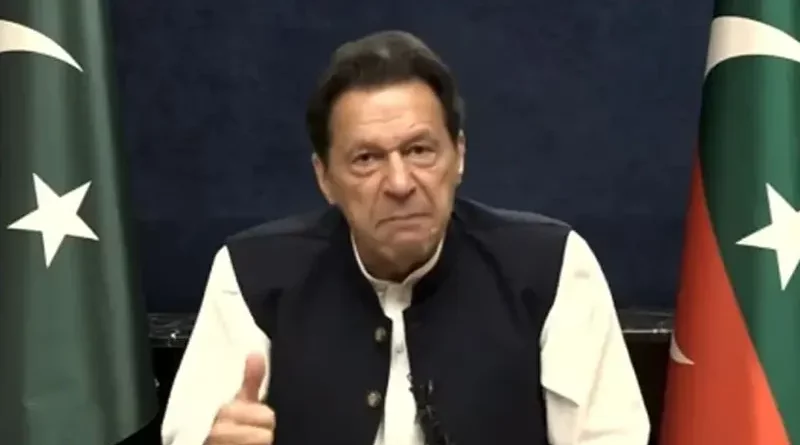Imran Khan challenges 3-member commission probing audio leaks
After questioning the government for the “deliberate omission” of the Terms of Reference (TORs), Pakistan Tehreek-e-Insaf (PTI) Chairman Imran Khan has challenged the formation of the three-member judicial commission probing the audio leaks pertaining to the judiciary in the Supreme Court.
Babar Awan, the PTI chief’s lawyer and party leader, filed the plea on his behalf requesting the court to declare the notification for constituting the commission null and void.
The government, on Saturday, established a three-member judicial commission to probe into audio leaks involving the retired and sitting members of the judiciary as well as lawyers casting doubts on the institution’s credibility. The judicial body was tasked to complete the job within 30 days.
Law Minister Azam Nazeer Tarar earlier said that the government did not consult Chief Justice Umar Ata Bandial before forming the commission.
The judicial panel — headed by Senior Puisne Judge Justice Qazi Faez Isa and comprising Balochistan High Court Chief Justice Naeem Akhtar Afghan and Islamabad High Court (IHC) CJ Aamer Farooq as members — was constituted in the wake of widely circulated controversial audios which raised “serious apprehensions about the independence, impartiality and uprightness of the Chief Justices/Judges of the Superior Courts in the administration of justice”.
The government said the audio leaks raised serious apprehensions about the independence of the judiciary in the public interest; therefore, it has constituted the commission under Section 3 of the Pakistan Commissions of the Inquiry Act, 2017.
In the petition filed today, Khan maintained that no judge can be nominated for the commission without the chief justice of Pakistan’s permission.
“The Supreme Judicial Council is the only forum for investigation or action against any judge of the Supreme Court,” the petition read.
In his plea, the PTI chief insisted that the commission’s TORs “suffer from a deliberate omission” with no accountability of who is “behind the unlawful and unconstitutional surveillance.”
Taking to his Twitter, the cricketer-turned-politician also shared a strongly-worded tweet in this regard.
“They fail to take into account the issue that who is behind unlawful and unconstitutional surveillance of PM office and sitting judges of the Supreme Court. The Commission should be empowered to investigate who are these powerful and unknown elements who tap and record telephone conversations of citizens including high public functionaries,” he tweeted.

